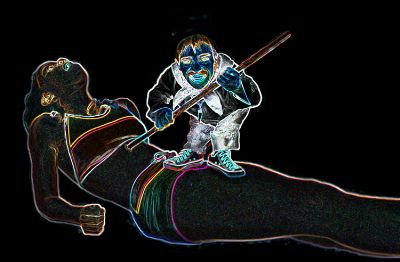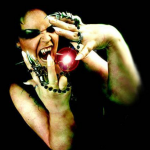Although many cultures propose mythos related to ghosts and revenants, the Eastern European vampire is the revenant superstition that pervades today popular culture’s concept of vampire. The roots of vampire belief in Slavic culture are based to a large extent in the spiritual beliefs and practices of pre-Christianized Slavic peoples and their understanding of life after death.
Dualism is the basis of Slavic beliefs in life after death. The Slavs believed that upon death the soul would go out of the body and wander about its neighbourhood and workplace for 40 days before moving on to an eternal afterlife. During this time the soul was believed to be able to re-enter the corpse of the deceased. Much like the other spirits (Domovoi, Rusalka, Vila, Kikimora, Poludnitsa, and Vodyanoyof) of pagan beliefs , the passing soul could either bless or wreak havoc on its family and neighbours during its 40 days of passing.

Upon an individual’s death, much stress was placed on proper burial rites to ensure the soul’s purity and peace as it separated from the body. The death of an unbaptized child, a violent or an untimely death, or the death of a grievous sinner (such as a sorcerer or murderer) were all reasons for a soul to become unclean after death. A soul could also be made unclean if its body were not given a proper burial. Alternatively, a body not given a proper burial could be susceptible to possession by other unclean souls and spirits. Slavs feared unclean souls because of their potential for taking vengeance.
From these deeply implicated beliefs pertaining to death and the soul derives the invention of the Slavic concept of vampir. A vampire is the manifestation of an unclean spirit possessing a decomposing body. This undead creature is considered to be vengeful and jealous towards the living and needs the blood of the living to sustain its body’s existence.








